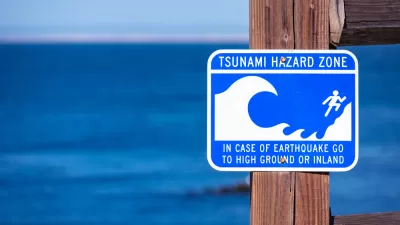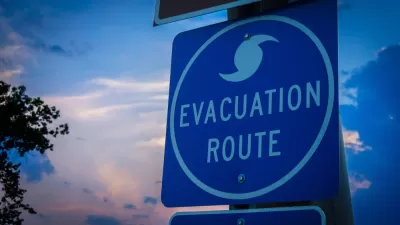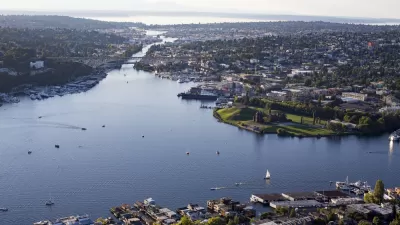In GeekWire, Chuck Wolfe covers an atypical urban planning and policy gathering called an “Urban Resilience Hackathon,” which was held at the University of Washington in Seattle late last month. For a day, the event showcased collaborative problem solving and innovative thinking in addressing urban challenges.

Writing for GeekWire—and as a hackathon participant—Chuck Wolfe explains how the hackathon brought together volunteer organizations, state and local government, students, and researchers to co-develop testable “resilience pilot projects” that could help Seattle be more prepared for future disruptions.
DemocracyLab, a “tech for good” nonprofit, helped facilitate the hackathon, which had support from the National Science Foundation LEAP-HI project, and the UW’s Department of Urban Design and Planning.
The UW hackathon centered on various pitches each addressing a different aspect of urban resilience to be tested against a future earthquake, pandemic, excessive heat event, or massive airline flight grounding. The pitches were also assessed for support of the Seattle Climate Action Plan and Seattle Race and Justice Initiative.
The range of projects presented, from urban system solutions to emergency water storage, speaks to the diverse issues that require further preparation and collaboration.
“Crises don’t allow time to invent responses from scratch,” said Dr. Dan Abramson, one of the event’s organizers from the UW Department of Urban Design and Planning. “Cities need to be adaptable, and the most adaptable cities are those that have a deep reserve of policies and programs they can draw on to keep themselves vital when normal activities are disrupted.”
FULL STORY: Can tech help cities plan for disasters? 7 ideas from an urban resilience hackathon

Study: Maui’s Plan to Convert Vacation Rentals to Long-Term Housing Could Cause Nearly $1 Billion Economic Loss
The plan would reduce visitor accommodation by 25,% resulting in 1,900 jobs lost.

North Texas Transit Leaders Tout Benefits of TOD for Growing Region
At a summit focused on transit-oriented development, policymakers discussed how North Texas’ expanded light rail system can serve as a tool for economic growth.

Why Should We Subsidize Public Transportation?
Many public transit agencies face financial stress due to rising costs, declining fare revenue, and declining subsidies. Transit advocates must provide a strong business case for increasing public transit funding.

How to Make US Trains Faster
Changes to boarding platforms and a switch to electric trains could improve U.S. passenger rail service without the added cost of high-speed rail.

Columbia’s Revitalized ‘Loop’ Is a Hub for Local Entrepreneurs
A focus on small businesses is helping a commercial corridor in Columbia, Missouri thrive.

Invasive Insect Threatens Minnesota’s Ash Forests
The Emerald Ash Borer is a rapidly spreading invasive pest threatening Minnesota’s ash trees, and homeowners are encouraged to plant diverse replacement species, avoid moving ash firewood, and monitor for signs of infestation.
Urban Design for Planners 1: Software Tools
This six-course series explores essential urban design concepts using open source software and equips planners with the tools they need to participate fully in the urban design process.
Planning for Universal Design
Learn the tools for implementing Universal Design in planning regulations.
City of Santa Clarita
Ascent Environmental
Institute for Housing and Urban Development Studies (IHS)
City of Grandview
Harvard GSD Executive Education
Toledo-Lucas County Plan Commissions
Salt Lake City
NYU Wagner Graduate School of Public Service





























